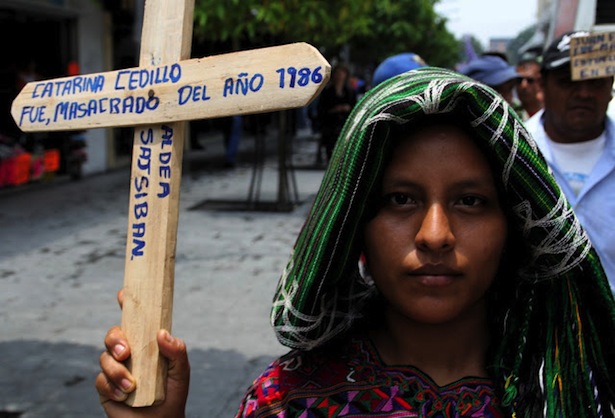 by Marta Molina, Waging Nonviolence
by Marta Molina, Waging Nonviolence
On May 20, Guatemala's Constitutional Court overturned the historic guilty verdict of the nation's former military dictator Efraín Ríos Montt, who had been convicted of committing genocide and crimes against humanity during his short reign from 1982 to 1983. The Constitutional Court's decision annulled Montt's 80-year prison sentence and ordered that the final weeks of the case be retried. At 86 years old, Ríos Montt was the first former head of state in Latin America to be sentenced for genocide by his own country.
In response, human rights organizations across Latin America organized actions protesting the sentence annulment, supporting the victims of genocide and condemning legal impunity. In Guatemala, an estimated 5,000 people marched through the capital on May 24. Simultaneous actions occurred in front of the Guatemalan embassies in Buenos Aires, Argentina; Mexico City, Mexico; Managua, Nicaragua; Lima, Peru; Tegucigalpa and San Pedro Sula in Honduras. Additional protests occurred in El Salvador and Costa Rica.
Recent Updates
1 day 6 hours ago
2 days 5 hours ago
2 days 6 hours ago
2 days 6 hours ago
4 days 7 hours ago
4 days 8 hours ago
4 days 8 hours ago
5 days 9 hours ago
5 days 9 hours ago
5 days 11 hours ago